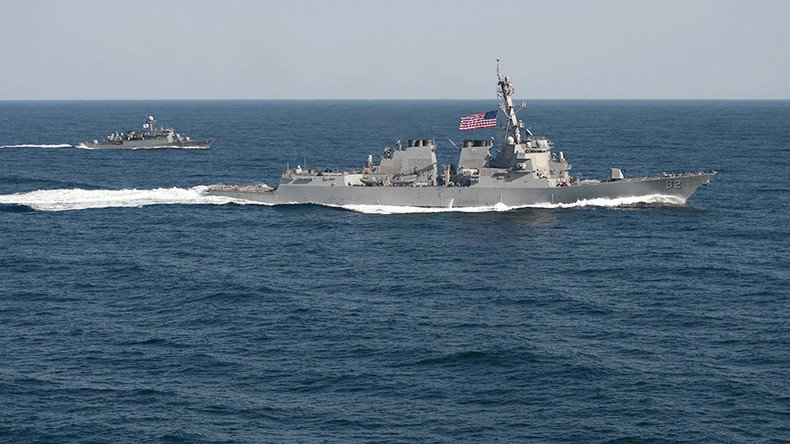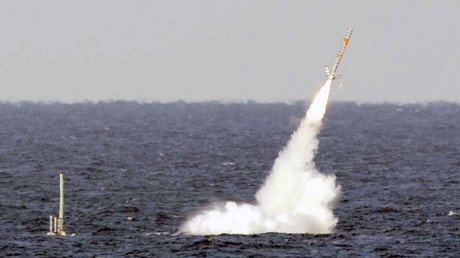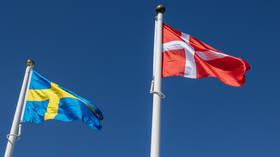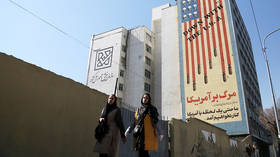US State Dept. accuses China & Russia of increasing global tensions

A US State Department spokesman has taken a swipe at Beijing and Moscow, saying their militarization is making the world unsafe. John Kirby said this is a view shared by “much of the rest of the international community.”
Spokesperson Kirby for the US Department of State told a press briefing on Thursday that US military expansion into Eastern Europe and the South China Sea is at the behest of its allies, while dismissing that this could be perceived as a threat by Russia and China.
“Our allies and partners, I think, find [it] pretty comforting and reassuring [that there is a] US military presence in the region, which will continue,” Kirby replied when asked about NATO’s move towards the east not being perceived as a threat, or US ships sailing into the South China Sea.
For years, Russia has complained of NATO expansion towards its borders, with the US-led bloc going against its word.
Mikhail Gorbachev, the Soviet president at the time, confirmed that there was a promise not to enlarge NATO, not even "as much as a thumb's width further to the east.” But this commitment was never formally documented, and since then the alliance has grown drastically, from 16 member states in 1990 to 28 currently.
Likewise, China has grown increasingly annoyed at provocative actions carried out by the US military in the Pacific. In January, the US Navy sent a guided missile destroyer within 12 nautical miles of Triton Island in the Paracel Islands archipelago in the South China Sea – an area which China, among other regional states, claims sovereignty over.
Kirby was challenged by AP’s Matt Lee, who said: “Surely you can understand, yes or no, that from the Chinese perspective, that is also militarization and it raises tensions?”
However, Kirby, who accused Lee of “speaking for the Chinese government,” simply stated that the actions carried out by Washington are “not militarization,” while mentioning it is not a case of “we’re right and you’re wrong” and that the US is keeping its promises to its allies in the region.
“I’m not going to characterize how they’re viewing each and every flight or navy ship that sails through the South China Sea. But you said it’s, ‘You want them to accept your explanation,’” Kirby stated.
‘Russia a major military’: President Obama backtracks on Moscow’s defense capabilities https://t.co/ML6bALSprppic.twitter.com/Ek0RTznm3W
— RT (@RT_com) February 19, 2016
“It’s not just the United States’ explanation. It’s the explanation, it’s the view of… much of the rest of the international community about what the prime source of tension is there, and that is the further reclamation of features and the militarization that we’ve seen on many of them,” he added.
While Washington may be appeasing its regional allies such as Vietnam, South Korea and Japan in the South China Sea, Victor Gao, director of the China National Association of International Studies, told RT that the actions carried out by the US are further turning Chinese public opinion against Washington.
“Whatever China is doing, including the land reclamation…is completely within Chinese sovereign right... I think the more pressure the US wants to put on China, the more re-bounce there will be from China,” Gao mentioned.
“Definitely it is not [viewed] in a positive manner by the Chinese government or by the Chinese people. They tend to interpret what the US is really up to as interference into Chinese domestic affairs...”
Lee also hit back at Kirby, questioning Washington’s logic in sending warships and military planes into areas deemed sensitive by Beijing.
“The fact of the matter is the tensions are rising, and when you sail military ships or put military aircraft in there, it doesn’t reduce the tension. It just makes the tension rise more. And I don’t see why,” Lee said.
Concerning the idea that Russia and China would want to take counter-measures to ensure their national security, such as Moscow deploying its S-400 missile defense system, Kirby squarely put the blame back on Beijing and Moscow, saying: “The point is that militarization of these features does nothing to reduce tensions.”













